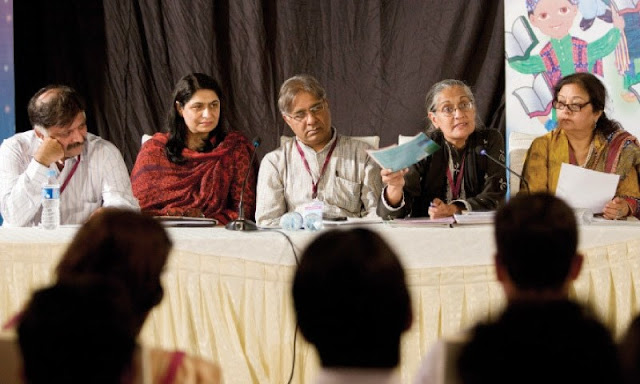Mazhur-ul-Haq is from Bihar, he came to Pakistan with my nani aged 10 during the great migration in 1947. Agha, as we lovingly call him, was hired to play with the children, he has a strong Bihari accent, but tragically does not know how to make Bihari kabab, all my teen years I assumed that the Bihari kababs we ate at my nani’s house were Agha’s genius cooking. They were actually from Café De Khan.
Hence this Eid, I decided to go down memory lane and make Agha’s (actually Café De Khan’s) Bihari kababs.
It is believed that the Turkish and Persian soldiers enjoyed grilling fresh meat on fire, while it hung wrapped around their swords. The meat chunks were cooked in animal fat and once ready, consumed immediately. The soldiers hunted for survival, while journeying land to land for conquests. The kabab is also mentioned in the Turkish language script of Qissa-e-Yousuf published in 1377.
Kabab, like most exotic South Asian foods, has a wonderful history. It has traveled far and wide through times and regions, evolving to suit the taste of the indigenous population and cities it passed through.
Playing tune to the taste of the local spices and cuisines, yet maintaining its distinct universal appeal through the times. Undoubtedly, today, it is the most recognised eastern food in the western part of the world.
Kababs have always been a rustic favourite; and while they were said to be a prominent part of the Moghul menu, the variation of the modern day Bihari Kabab is a purely Bihari and Bengali take on the meat.
And though the Bihari kabab is made with meat chunks like in the ancient times, it is nothing like the kababs that the Turks must have eaten. Instead it has upgraded to a delicious, melt-in-the mouth texture, infused with spices, yougurt and tenderising papaya. The word kabab is said to originate from the Arabic language, but the Persians, Turks and central Asians also lay claim to it. It literally means to fry, burn or cook on a skewer through grilling or open fire cooking.
The subcontinent hosts more than a dozen popular kabab recipes; shami, reshmi, dum, boti, seekh, chapli, galavati and tandoori, amongst many. However, the uniqueness of the Bihari kabab is in its texture, marinade and spice content.
The people of the subcontinent boast a diet rich in spice content, and traditionally cuisines across Pakistan and India include a wide range of kababs infused with garam masala, coriander seeds, cumin seeds, yogurt, black pepper, lemon juice, eggs, cornstarch, atta, coriander leaves, tomatoes and onions, unlike their middle eastern counter parts, which tend to be much milder.
Though cuisine from Bihar is traditionally vegetarian, the bihari kabab is a meat delight that has an infusion of mustard oil, largely used in India, and specifically Bengal and Bihar, and a liberal amount of masala. The use of kabab chini, poppy seeds, nutmeg, mace and papaya as meat tenderisers makes it remarkably tender. The secret ingredient is a generous addition of bihari kabab garam masala.
While writing this blog, and preparing the kababs, I was left with a generous portion of marinade, and needless to say it was too delightful to be thrown away, hence that’s when I noticed the recipe of ungushti on the overleaf of the recipe given to me by Shazli Auntie, who is authentically Bihari.
Ungushti is a delight that is made with leftover bihari kabab marinade mixed in with a generous helping of flour, and salt if needed, wrapped around the skewer tightly like grilling a seekh kabab.
Needless to say the kababs and ungushti both turned out fabulous. Here it is, a very happy Eid Mubarak from my kitchen to yours.
Ingredients
1 ½ kg. veal chunk/beef chunk, thinly sliced and pounded
¾ cup yogurt
6 tbsp. finely grated raw papaya with skin
¾ cups fried onions
4 tsp. freshly grated ginger
4 tsp. chopped garlic
1 tsp. nutmeg powder
1 tsp. cinnamon powder
1 ½ tsp. cumin powder roasted
2 tsp. paprika powder
2 tsp. red chillie powder, or to taste
2 tsp. poppy seeds
4 tsp. bihari kabab garam masala
¾ cup mustard oil (optional)
Salt to taste
(Mix in food processor and marinade meat)
Bihari Kabab Garam Masala
(Use coffee grinder to make powder, and store unused portion in tightly sealed jar for future use)
2 tsp. kabab chini
2 tsp. fennel
2 star anise
4 tsp. whole back peppercorns
2 cloves
½ nutmeg
1 tsp. mace
10 green cardamom
6 black cardamom
2 tbsp. coriander, whole
2 tbsp. cumin seeds
12 dried red chillie
Method 1
Marinate the meat for at least 24 hours, grill meat on skewers, set a coal to heat on the grill.
Drop oil on the coal and cover with metal lid (if available) to infuse meat with smoke from the coal. Remove once the meat is tender.
Method 2
Heat a large pan with a heavy base, pour a little oil and heat, set meat chunks on pan, cover and cook for 10-20 minutes, flip and cook for another 10-20 minutes.
Transfer into an oven safe pan, broil for 15 minutes to dry moisture.
Heat coal, sprinkle with oil and set in oven for a few minutes to infuse kababs with smoke from the coal.
Serve with imli chutney, sliced onions, paratha or naan.












